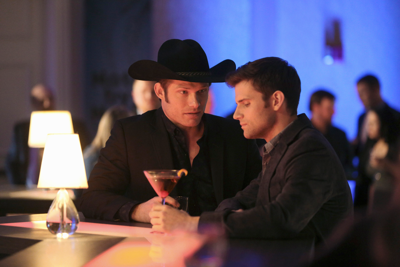
“Are you from Nashville?” is a question I’m asked a lot, probably because I spend too much money taking Lyfts. How to respond can be a delicate operation. If my inquisitor is new to town, I just say “yes.” Technically, I’ve been here about 13 years, and that’s usually enough to satisfy New Nashville residents from the exotic lands of Ohio and beyond. I can confidently share tips about which side streets to avoid, the best honky-tonk to take your mama to, and how to pronounce “Demonbreun.”
But Nashville natives can sometimes be touchy about bona fides, so when I come across a real local, born and raised, I have to be honest: No, I’m not from here. I grew up nearly two hours west, in a very small town located right on the Tennessee River. It was boring, insulated, lonely, and I really feel I should reiterate “boring.” Any trip out of the county was a treat, and a visit to Nashville was the most exciting.
My childhood experience with Nashville was via plays at TPAC and the occasional downtown Fourth of July fireworks show. I knew it was a big country music town — the country music town. But no one in my family listened to country music, so that didn’t mean much to me. My only real experience with country was because of school friends, so I knew a handful of ’90s hits. My grandparents, who lived in a place called Possum Holler, sometimes watched Hee-Haw and listened to country-tinged gospel. But that was all I was familiar with.
I studied English at MTSU, but mostly went out to see rock bands. I moved to Nashville not long after graduation, when Nashville was still “up-and-coming” in the cool sense of the term. I can’t pretend it wasn’t fun for a kid who grew up in the middle of nowhere to make friends with musicians and artists, or to read about my favorite clubs in magazine profiles. And, of course, to gripe about what the profiles got wrong.
You may not remember, because 2012 seems so quaint and distant from the traumatized perspective of 2018, but it was kind of a big deal when we found out there was going to be a show, about Nashville, called Nashville, filmed in Nashville. On ABC! That’s a real network and everything! And what better person to write about the country music television series Nashville than a person not from here, who knows nothing about country music?
While it’s true my country music ignorance (at the time) was vast and deep, I can assure you, I know a lot about television. There wasn’t much to do in New Johnsonville, but at least we had cable. At its best (and when a show knows what it’s doing), a recap can be a thoughtful and illuminating critique. For Nashville, I went the opposite route: a scene-by-scene summary, peppered with insults and utter confusion about what any character is supposed to want from episode to episode.
Six years is an admirable run for a TV show, and of course, the show’s focus changed a lot over that time. But fundamentally, it was a show about musicians at varying levels of success. Rayna and Juliette are famous and popular — but are they? Will Deacon’s alcoholism destroy his talent — and the woman he loves? The characters under my microscope the most often over these past six years have been Avery, Gunnar and Will, the latter of whom is a gay country star with so much self-loathing that he eventually tried to kill himself — and even worse, participated in reality TV. These characters were originally sold as “East Nashville hipster” types. It was hard not to take the bait.
Longtime readers of my Nashville recaps will know that I was hardest on poor, beautiful Scarlett (see a selected list of my descriptors for the rising young starlet on p. 14). Rayna was too perfect to be relatable, and Juliette is the camp queen of my heart, a true soap opera diva. But Scarlett! I hope it’s not shocking that the character who frustrated me the most was the one I related to the most. She had stage fright, except when she didn’t. And Scarlett never knew her place in the world — is she a musician? A singer? A songwriter? A poet? An equestrienne-slash-waitress? Her ambivalence about her life and talent was usually portrayed as weakness, and in true TV-drama fashion, she only started to assert herself once she got a haircut.
Like Scarlett, I’m often intimidated by my friends’ talents. When you don’t grow up around musicians, finding yourself in that world can be unmooring. Did you know that people write songs about their feelings, and then sing them in front of strangers? That there are people who can pick up instruments and then, boom, beauty? There are voices in this town that make me cry. Scarlett, honey, if you want to feel not-good-enough, try not being a musician at all.
In Nashville, fortunes change. Stars rise and fall. Some of the musicians are still chasing superstardom, while others are finding permanent homes in Nashville’s artistic community. I absolutely never, ever expected this, but six years of recaps for the Scene has done the same for me. I was able to leave a job I’ll define simply as “spreadsheets” to become a full-time writer. I’ve had a handful of interactions with both cast and crew, and to a one, every single person has been extraordinarily kind to this woman who talks mad shit on their hard work. I’ve never had to read a nasty comment about my awful jokes. It’s been humbling, but it’s also been pretty gratifying as, you know, a writer with an ego. (One reason I preferred Juliette over Rayna: At least Juliette could admit she liked the attention!)
Nashville changed my life. I wrote roughly 150,000 words about this show over the course of six years, and buddy, let me tell you: Writing a lot of words on a tight deadline is the only way to get better at making words good. I’m a more confident writer. I’m learning to take compliments with grace, and critiques with the same good humor as every actor on the show. I probably won’t pick up a guitar anytime soon, and some part of me will always be the little backwoods kid gawping at the big city.
But Nashville is my home now, and Nashville helped me find my place in it.





